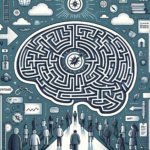
Mindful Moments: Incorporating Calm into Your Busy Life: The Essential Guide to Finding Peace Amid Chaos
Introduction
In today’s fast-paced world, the notion of finding calm can feel like searching for a needle in a haystack. As our lives become busier with work, family obligations, and endless to-do lists, incorporating moments of peace into our daily routines often seems impossible. Yet, the practice of mindfulness is not just a buzzword; it’s an essential tool for cultivating calm. Mindful Moments: Incorporating Calm into Your Busy Life is about more than just relaxation; it’s about transformative living, fostering resilience, and enhancing our overall well-being.
Imagine starting your day with a clear mind or unwinding after a stressful meeting with a renewed sense of tranquility. This article will delve deep into how you can create mindful moments in your daily routine, offering unique insights, practical tips, and real-world case studies to inspire you on your journey towards a more serene existence amidst the chaos.
The Importance of Mindfulness in a Busy World
Understanding Mindfulness
Mindfulness is the practice of staying present and fully engaging with the current moment. This may involve focusing on your breath, noticing the sights and sounds around you, or observing your thoughts without judgment. By integrating mindfulness into our lives, we can reduce stress, increase emotional resilience, and enhance overall happiness.
The Busy Life Dilemma
In a world dominated by technology and constant connectivity, the demands on our time and attention have never been greater. Data from the American Psychological Association shows that nearly 78% of Americans report feeling stressed regularly, which is alarming. The need for Mindful Moments: Incorporating Calm into Your Busy Life has never been more critical.
Real-World Case Study: The Tech Company’s Mindfulness Initiative
Consider tech giant Google, which has been known to incorporate mindfulness practices into their work culture. They created the "Search Inside Yourself" program, which has significantly improved employees’ focus, creativity, and emotional intelligence. By promoting mindful moments among busy professionals, Google recognized that investing in their employees’ well-being benefits not just the individual but also the organization’s productivity as a whole.
Understanding Stress and Its Effects
Table 1: Common Symptoms of Stress
| Symptoms | Description |
|---|---|
| Irritability | Increased frustration over small issues |
| Fatigue | Persistent tiredness despite adequate rest |
| Difficulty concentrating | Trouble focusing on tasks or making decisions |
| Physical symptoms | Headaches, muscle tension, digestive issues |
Understanding the effects of stress is vital for anyone aiming to incorporate more mindful moments into their lives. Recognizing these symptoms can be the first step toward seeking out tools to counteract them.
Creating Mindful Moments: Practical Tips and Techniques
1. Start Your Day with Intention
The way you begin your day sets the tone for everything that follows. Instead of diving into emails or social media, take a few moments each morning to engage in mindfulness activities.
Mindful Breathing: Spend five minutes focusing on your breath. Inhale slowly through your nose, hold for a moment, and exhale gently through your mouth. This simple practice can ground your mind and prepare you for the day ahead.
- Gratitude Journaling: Keep a journal where you write down three things you’re grateful for each morning. This practice shifts your focus from worries to positivity.
2. Incorporate Mindfulness into Your Commute
Your commute can be a perfect opportunity to practice mindfulness. Instead of scrolling through your phone or listening to intense music, try these:
Mindful Listening: Listen to calming music or a guided mindfulness meditation during your commute. This can set a peaceful mood for the rest of your day.
- Visual Gratitude: As you travel, take note of beautiful scenery or joyful moments. This can help refocus your attention on positivity rather than stress.
3. Utilize Breaks Effectively
Work breaks should be more than just quick escapes. Use these valuable moments to recharge your mental faculties:
Mini-Meditation: Spend five minutes in a quiet place, close your eyes, and focus on your breathing. This can significantly lower stress and improve clarity.
- Movement: Engage in gentle stretching or a quick walk. Physical activity releases endorphins, which improve mood and overall well-being.
4. Practice Mindful Eating
Mindful eating is not just about nutrition; it’s about savoring every bite. Follow these principles to transform your meals:
Slow Down: Avoid eating on autopilot. Instead, focus on the flavors, textures, and aroma of your food. This practice enhances appreciation and promotes healthier eating habits.
- Meal Preparation: Take time on the weekends to prepare your meals for the week. This keeps you from grabbing unhealthy convenience foods during busy periods.
5. End Your Day with Calmness
As you wind down for the day, incorporate practices that promote relaxation:
Evening Reflection: Take a few minutes each evening to reflect on your day. What went well? What could you improve? This not only helps reduce stress but also fosters personal growth.
- Digital Detox: Set aside an hour before bed to disconnect from screens. Instead, read a book, take a bath, or practice gentle yoga.
Real-World Case Study: The Power of Mindful Eating
A study published in the Journal of Health Psychology found that participants who practiced mindful eating reported a decrease in emotional eating and improved relationships with food. By being present during meals, these individuals made better-food choices and experienced greater satisfaction. This reflects the power of Mindful Moments: Incorporating Calm into Your Busy Life through dietary habits.
The Benefits of Mindfulness: A Data-Driven Approach
Improvement in Well-Being
According to a meta-analysis published in the journal Psychological Bulletin, mindfulness practices are associated with significant improvements in both mental and physical health. This encompasses reduced anxiety, improved emotional regulation, and enhanced immunity.
Chart 1: Benefits of Mindfulness Practices
| Benefit | Description | Percent Improvement |
|---|---|---|
| Reduced Anxiety | Participants reported less daily anxiety | 30% |
| Improved Mood | Greater overall life satisfaction | 25% |
| Enhanced Focus | Increased concentration during tasks | 40% |
| Better Relationships | Fewer conflicts and increased empathy | 35% |
These statistics underscore why it’s vital to prioritize Mindful Moments: Incorporating Calm into Your Busy Life.
Integrating Mindfulness into Your Work Environment
Recognizing Workplace Stress
With long hours and tight deadlines, workplace stress is increasingly prevalent. Companies must acknowledge this and foster a culture that encourages mindfulness:
Quiet Zones: Designate quiet spaces where employees can take short mindfulness breaks.
- Mindfulness Training: Provide resources or classes on mindfulness techniques for employees to utilize during work hours.
Real-World Case Study: Mindfulness in Healthcare
In a 2016 study in the Journal of Psychosomatic Research, healthcare workers who participated in mindfulness training reported reduced levels of stress and burnout. The results showed improved patient care and job satisfaction, demonstrating how Mindful Moments: Incorporating Calm into Your Busy Life can benefit both staff and patients.
Overcoming Challenges to Mindfulness
Common Obstacles to Mindfulness Practice
Even with the best intentions, barriers to practicing mindfulness can arise:
Time Constraints: Many believe they don’t have time to incorporate mindfulness. However, even short sessions of a few minutes can yield benefits.
- Self-Judgment: Some individuals may feel critical of themselves when attempting mindfulness practices. Overcoming this self-judgment is essential for reaping the rewards.
Tips for Overcoming Challenges
Set Realistic Goals: Start small with just a few moments of mindfulness each day and gradually increase the duration.
- Join a Community: Engaging with others who are also practicing mindfulness can provide support, inspiration, and accountability.
Conclusion: Your Path to Mindful Moments
Incorporating mindfulness into your busy life is not just an option; it’s a necessity for maintaining peace and balance. Whether it’s through mindful breathing, eating, or simply taking a moment to pause and reflect, the benefits are clear. As we have explored the importance and practicality of Mindful Moments: Incorporating Calm into Your Busy Life, it is essential to take action.
Begin by committing to small, manageable changes in your daily routine. Over time, these mindful practices can lead to profound shifts in your mental and emotional well-being, allowing you to become more present, resilient, and ultimately happier. Remember, every moment counts; embrace the transformative power of mindfulness today.
FAQs
1. What are some simple mindfulness techniques to start with?
A: Simple techniques include mindful breathing, body scanning, and mindful walking. These can be practiced in just a few minutes throughout the day.
2. Can mindfulness help in reducing stress and anxiety?
A: Yes, numerous studies indicate that mindfulness practices can lower stress levels and help manage anxiety effectively.
3. How can I remember to take mindful moments during a busy day?
A: Set reminders on your phone or integrate mindfulness into everyday activities, like pausing for a few deep breaths when transitioning between tasks.
4. Is mindfulness a religious practice?
A: While mindfulness has roots in various spiritual traditions, it is commonly practiced in a secular manner focused on mental health and well-being.
5. How long does it take to see benefits from mindfulness?
A: Benefits can often be felt within weeks, although lasting changes may take longer depending on individual commitment and practice consistency.
By being proactive and committing to Mindful Moments: Incorporating Calm into Your Busy Life, you can transform your relationship with stress and cultivate a more peaceful existence, no matter how hectic life may get. Take the first step today and embrace mindfulness in all its forms.

















